10 Best C and C++ Books for Beginners & Advanced Programmers
If you want to become a skilled software developer, you should never stop learning, whether you're a working professional or a student. Why, therefore, only C or C++? The fundamental fact is that C gives programmers what they want and allows them to create according to their needs. C++, which replaced C and allows programmers to use code with great mobility, also introduced the concepts of objects and classes. These two are the most utilised by developers worldwide in the current technology-driven world, and all business sizes are adopting them, which is why demand for C and C++ is increasing daily.
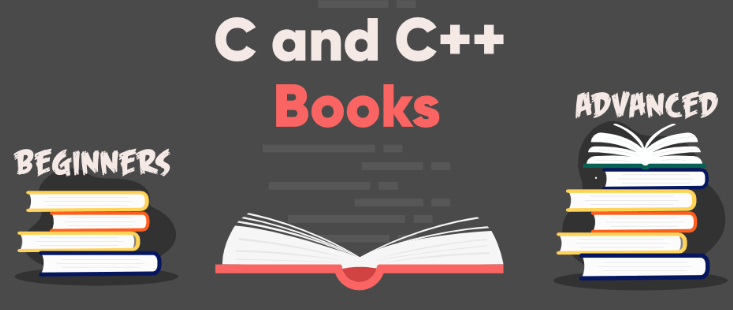
Yes, there are other languages you can learn, but learning C is important because it serves as the groundwork for entering the field of programming. However, with the aid of these top books, which we'll examine in this article today, one can learn or master these languages. Books reading helps you pick things up (learn things) more quickly. You become an expert in that language because you learn every topic in detail.
We will comprehend the top ten C and C++ books for both beginners and experts with the aid of this article. Let's investigate.
1. The C++ Programming Language (4th Edition) by Bjarne Stroustrup
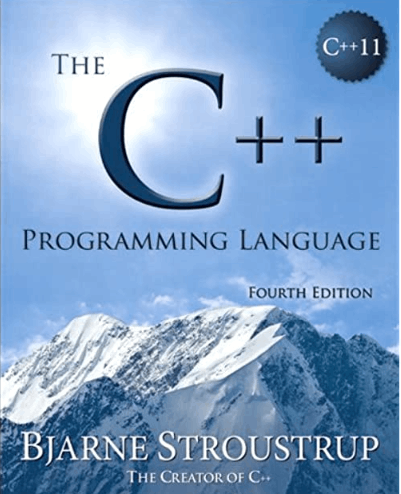
This book, which was created by Bjarne Stroustrup, the inventor of C++, contains information for both professionals and beginners to grasp the language. This is the fourth edition of the book, which includes exercises for practise as well as comprehensive information in full form. You may study the fundamentals of C++, libraries, containers, OOPS, and other topics with the aid of this book. The author is a member of the American National Academy of Engineering and has also contributed to a few other C++-based works.
2. C Programming Language (2nd Edition) by Brain W. Kernighan & Dennis M. Ritchie
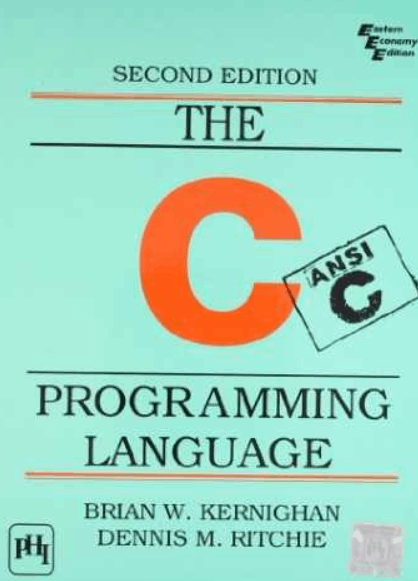
The American National Standards Institute (ANSI) standards are followed by this book's second edition, which outlines the fundamentals of the C programming language. The book, written by Brian Kernighan and Dennis Ritchie, explains OOPS and the principles of writing in the C programming language. This book is appropriate for programmers at both the basic and advanced levels, and its strongest feature is that it teaches all the concepts including functions and loops, libraries, data structures, etc. right from the start. One can complete several exercises including error correction and improvements to existing codes while practising with this book, which will improve conceptual comprehension and knowledge.
3. Headfirst C: A Brain-Friendly by David Griffiths and Dawn Griffiths
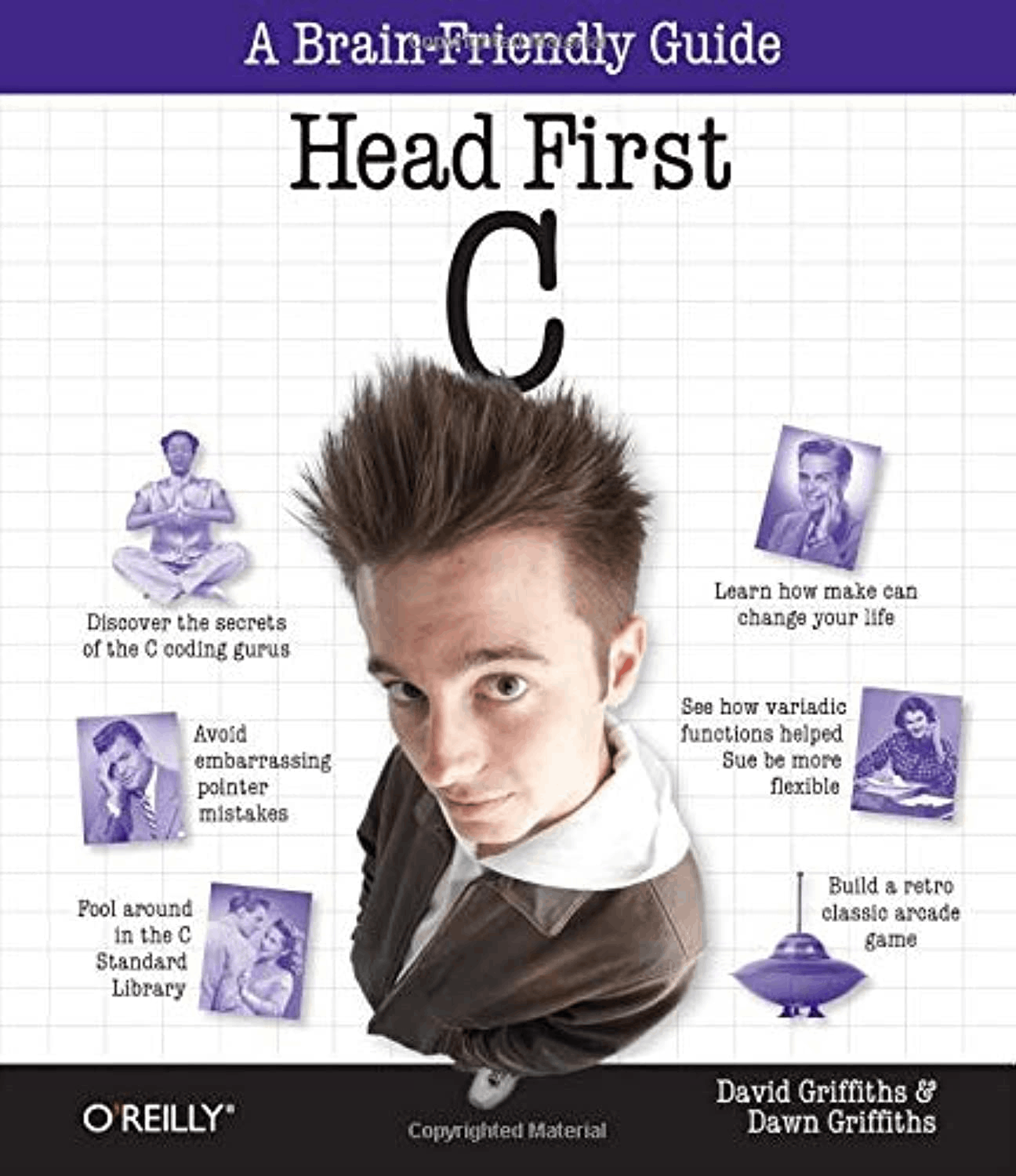
Ever pondered how learning C only from a book is possible? Whether you're a student or a working professional, you may accomplish a lot with the aid of the book "Headfirst C." This book discusses a variety of techniques and aids in your comprehension of language fundamentals, pointers, dynamic memory management, etc. David Griffiths and Dawn Griffiths wrote this book in 2012 with the intention of sharing their knowledge in a light-hearted manner. To make it more engaging, they incorporated a lab section with assignments to test the reader's proficiency and help them hone their skills.
4. C++ Primer (5th Edition) by Stanley Lippman, Josee Lajoie, and Barbara E Moo
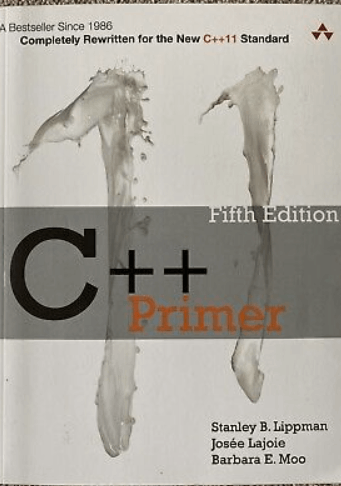
For people who want to learn the C++ language or improve their skills, this book is ideal. The C++ libraries and functions are completely introduced in this book. Since this is the fifth edition of the book, it has been updated to reflect the latest version of C++, and the examples are considerably more sophisticated and applicable to both expert and beginner-level students and working professionals. Published in 2012, the book was written by Stanley Lippman, Josee Lajoie, and Barbara Moo. If you want to learn C++ from scratch, this book can be a decent option.
5. Let us C by Yas Havant P Kanetkar
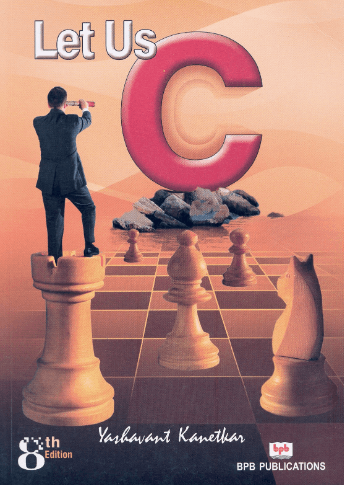
This book is a one-stop shop for all you need to learn the notion of C. This book is appropriate for everyone, explaining the fundamental idea before moving on to more in-depth information. In 2020, Yashavant P. Kanetkar, a pioneer himself and the recipient of Microsoft's "Most Valuable Profession" award, published the 17th version of his book Let us C. Participating in different exercises and MCQs might help someone improve their skills even if they are attempting to get ready for a competition. This book offers a distinct section for individuals getting ready for job interviews and covers all the fundamental information regarding arrays, functions, strings, etc.
6. Programming: Principles and Practice using C++ (2008) by Bjarne Stroustrup
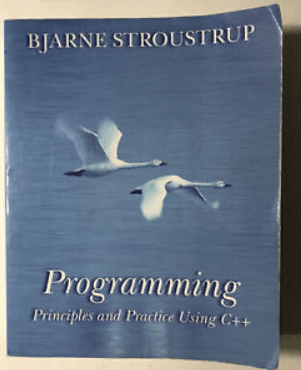
Another masterpiece created in 2008 by the man who invented C++. This book is beautifully written for both beginning and advanced coders, and as the reader gets more involved, the difficulty level rises. For constructing effective codes, a student can use the object-oriented programming, libraries, and modern C++ approaches covered in this book. If you merely consider the reviews, this book is probably among the finest, especially for people who have never coded before. On the other hand, it also improves the skill sets of those who have some coding experience. The book is structured into many sections where a student will acquire fundamental ideas, methods, and other information.
7. C: The Complete Reference by Herbert Schildt
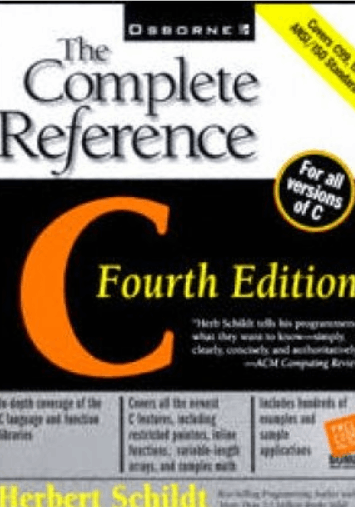
One of the greatest books for learning C for programmers at both the beginning and intermediate levels is this one. More than 2.5 million copies of Herbert Schildt's book have been sold globally, and it has been widely translated into several languages. According to ANSI standards, the new edition provides an overview of arrays, functions, operators, expressions, structure, etc. The latest C libraries, variable-length arrays, inline functions, and other topics are also covered in this book's perspective. It includes a range of examples and tasks that you can do at the end of each course to help you comprehend and sharpen your expertise while mastering the C programming language.
8. Effective Modern C++ (2014) by Scott Meyers
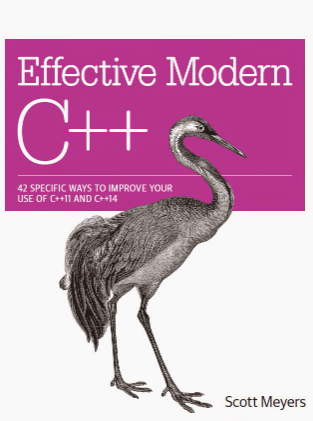
Those who want to improve their C++ skills may think about purchasing this book by Scott Meyers. It was designed to clarify the meaning of C++11 and C++14 and how to use them in practical projects. The fundamental ideas of C++, such as type declarations and lambda expressions, are covered in this book. In addition, the user will be taught how to use C++ to create an effective coding method. It covers a wide range of topics like the advantages and disadvantages of braced initialization, the connection between std: move and std: forward, and an explanation of how std: atomic differs from volatile. On the other hand, if you've begun studying C++ and wish to
9. Programming in ANSI by E. Balaguruswamy
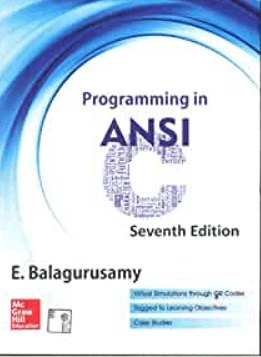
This book has been skilfully written to cover every level of the C programming language and has been created for all levels of programmers, from novices to experts. E. Balaguruswamy wrote this with the perspective of a user with no coding background in mind. The most recent functions, arrays, strings, and other concepts are covered in the book's more recent edition. The in-depth discusses every exercise component that programmers can use to fit their skill set. The 8th edition includes excellent pedagogical elements, revised content in accordance with AICTE standards for students, graphic programming in C, and much more.
10. Practial C++ Programming (2nd Edition) by Steve Oualline
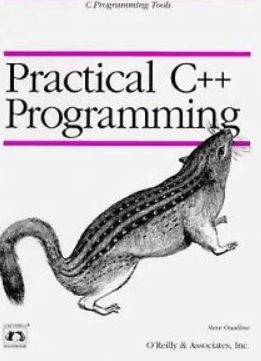
The second edition of Practical C++ Programming includes several evaluations, a rewritten introduction, a succinct history of C++, and instructions on how to design anything using C++ flawlessly. The use of object classes, creating styles, debugging templates, and other topics are covered in this book. Those who want to learn C++ can use this book as a resource. They should concentrate on the introduction section and make sure to finish all the exercises that are provided at the end of each unit. By the time you finish the book, it will demonstrate how to implement C++ in real-world projects by writing clean, effective code.